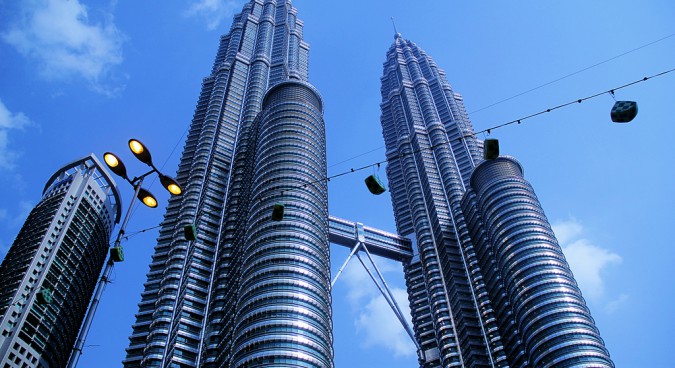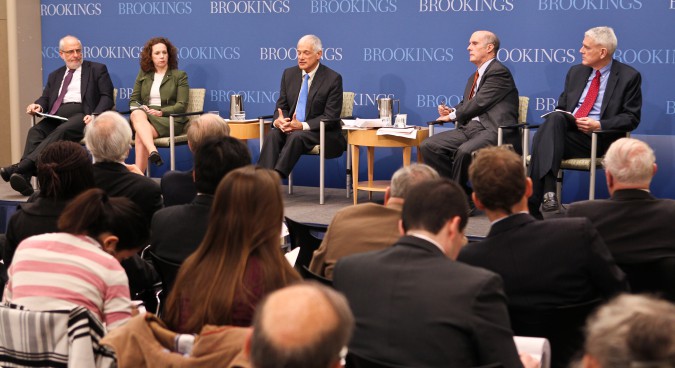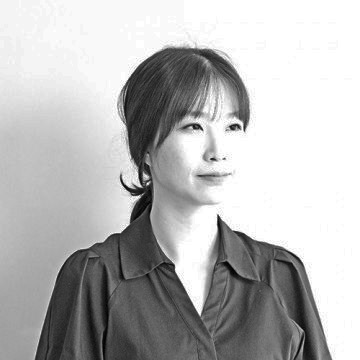Pyongyang's delegates meet with former US government officials
By Jun Ji-hye
A two-day informal meeting between the United States and North Korea over the weekend is sparking speculation that the two sides might have been exploring options before resuming their long-suspended government-to-government dialogue, analysts said Sunday.
The behind-the-scenes meeting between Pyongyang's incumbent and Washington's former government officials took place Friday and Saturday in Kuala Lumpur, Malaysia, just a day after the North's failed launch of what was presumed to be a Musudan intermediate-range ballistic missile. Participants said they mainly discussed the North's nuclear and missile issues. Diplomatic observers say the two sides appear to have already begun delving into each other's stance and thoughts amid their years-long confrontation at a time when the U.S. presidential election is just two weeks away. They noted that although it was an informal meeting, it might signal a move by the U.S. to seek official and open dialogue to defuse tensions on the Korean Peninsula caused by the North's repeated nuclear and missile tests. The North's delegation was led by Vice Foreign Minister Han Song-ryol and Deputy Ambassador to the United Nations Jang Il-hun, while the four-member U.S. delegation included Robert Gallucci, a former State Department special envoy on the North Korean nuclear issue; Joseph DeTrani, a former special envoy for the six-party talks; Leon Sigal, director of the Northeast Asia Cooperative Security Project at the Social Science Research Council (SSRC) in New York. Gallucci, who negotiated a landmark 1994 nuclear freeze deal with Pyongyang in the Bill Clinton administration, is known to be a close confidant to Democratic presidential nominee Hillary Clinton. As for topics discussed during the dialogue, Jang said the two sides talked about several "pending issues and each other's thoughts on them." Asked whether there was a request from the U.S. to stop nuclear and missile tests, he fell short of clarifying, but said he hoped the issue would be resolved "stage by stage." Sigal noted that the North stuck to its stance that it wants to sign a peace treaty with the U.S. before it stops its nuclear and missile programs, while the U.S. reiterated its position that scrapping the nuclear programs should be put before anything else. Still, he said that there was partial progress in the informal meeting, saying the U.S. participants were looking for ways to accomplish the inter-government dialogue. He added that no official negotiations with the North are expected under the Barack Obama administration, but a new U.S. government would need to reconsider policies toward the North. Experts said the two sides might have sought to explore what conditions were needed to change the atmosphere, and what policies need to be established after the U.S. presidential election. "The U.S. apparently sought to listen to the North's stance amid the transition of the administration," said Song Dae-sung, a former head of the Sejong Institute. Chang Yong-seok, a senior researcher at the Institute for Peace and Unification Studies at Seoul National University, said, "There is the possibility the North's delegation told the U.S. side that the issue of denuclearization of the Korean Peninsula could be negotiated, though the regime would be unwilling to stop its nuclear program for now." Some observers added that the North might have tried to water down demands raised inside the U.S. for a preemptive strike against the North's nuclear facilities by showing its willingness to talk. Both the South Korean and the U.S. governments rejected any suggestions that the meeting was meaningful, saying that it was just informal, private talks unrelated to their positions. The foreign ministry said Sunday that the United States remains firm in its commitment to denuclearize the North; and Washington and Seoul will cooperate with the international community to keep strong pressure and sanctions on Pyongyang to coerce it into giving up its nuclear ambitions. "The U.S. says that the latest consultation was a ‘track 2' meeting that has nothing to do with its government," a ministry official said on condition of anonymity, adding that the U.S. attendees who used to be involved in Washington's North Korea affairs decades ago have no say on its current policy. "With the principle that the North's denuclearization is a top priority, the U.S. government remains firm on its position that mentioning dialogue in a hasty manner without signs of the North's willingness to give up its nuclear weapons could only end up justifying its wrong behavior," he added. But critics noted that the latest conversation could be seen as a "track 1.5" meeting, not track 2, as participants from the North were incumbent government officials. |
S. Korea insists U.S., N.Korea closed-door meeting was unofficial
Meeting in Kuala Lumpur was "reconnoitering skirmish" ahead of next U.S. administration, expert says
A bilateral meeting between American experts and North Korean diplomats last week was unofficial and did not involve the U.S. government, the Ministry of Unification (MoU) said on Monday.
Americans held closed-door talks with North Korean officials for two days in Kuala Lumpur, South Korea’s KBS reported on Friday.
Han Song Ryol, North Korea’s vice foreign minister and Jang Il Hun, the deputy ambassador for the DPRK Mission to the UN, reportedly participated in the meeting.
Robert Gallucci, former U.S. chief negotiator with North Korea during the nuclear crisis of 1994, and Joseph DeTrani, former special envoy for the Six-Party Talks, were their American counterparts.
South Korea’s MoU and Ministry of Foreign Affairs (MOFA) reported that the meeting was “track two dialogue held at the non-governmental level.”
“I believe the North participated [in the meeting] since it needed to clarify its stance against the U.S,” Jeong Joon-hee, a MoU spokesperson, told reporters during a regular news briefing when asked why the North had sent officials and the U.S. had not.
“It takes two to tango, but the U.S. government didn’t accept it as a government-level meeting, even though the talks were approved by the government.”
The South’s MoU and MOFA maintain that the U.S. and the South are in agreement about the need to push for tougher sanctions against the North.
“The fact that the North dispatched the current officials to such a track two meeting proves its diplomatic isolation,” South Korea’s MOFA said on Sunday.
The talks focused on missile and nuclear issues, KBS reported.
“It (the meeting) gives us a chance to explore things that go beyond what the government is saying right now to see if we can find a way back to negotiations,” Sigal told reporters on Saturday according to a video aired by KBS.
A North Korean observer based in Seoul said that the meeting was a “reconnoitering skirmish” for the North.
“From the perspective of the North, they might be wondering about the U.S. stance,” Chang Yong-seok, senior researcher at the Institute for Peace and Unification Studies (IPUS) at Seoul National University (SNU) told NK News on Monday. “The next administration hasn’t been decided yet.”
But Cha Du-Hyeogn, a visiting scholar at the Korea Institute for National Unification (KINU), said that the Obama administration would not have delegated authority to the U.S. participants.
“Both re-confirmed each other’s stance, according to the media reports,” Cha told NK News. “Since the delegates don’t have any authority, they just need to check whether there is any change in the North’s position. But they aren’t in the position of making promises.”
KBS added that one leading figure in what is commonly referred to as a “track 2″ meeting was Tony Namkung, former assistant director of the Institute of East Asian Studies (IEAS) at the University of California, Berkeley.
Both experts shared the view that Namkung, an independent scholar and consultant with almost three decade’s experience engaging the North, as well as a frequent visitor to Pyongyang, was likely to lead negotiations.
The North held track 1.5 dialogue with the U.S. in Singapore in mid-January of this year. Ri Yong Ho, North Korea’s top nuclear negotiator, met with DeTrani and Namkung.
Featured Image: KLCC by L.Cheryl on 2012-07-28 16:58:30



